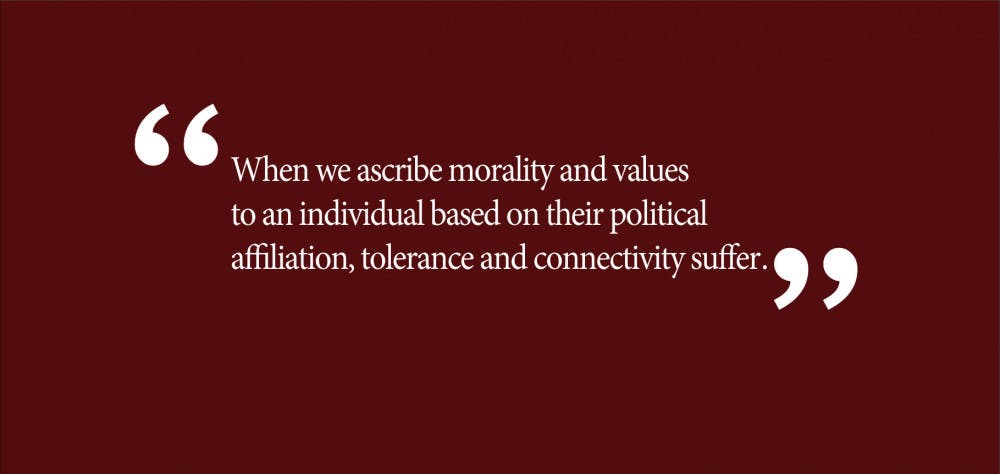1960’s essayist Joan Didion had it right: the center is not holding. It is a country of bankrupt farms and presidential Twitter tirades and commonplace mass shootings. It is a country where families are broken by opioid abuse and today’s children may never learn the social norms that have held society together without the use of a screen. Some people are left behind from the economic and social progress of the past decade; others are frustrated with the lack of economic and social progress of the past decade. People are weary of institutionalized privilege and power; others fear a changing demographic landscape. Read the Huffington Post and it is a country under enemy siege from within its communities. Follow Fox News and it is a country under enemy siege from foreign aliens.
This is the United States of America in the early fall of 2019 — the market is steady, the GDP is high and it could be a time of brave hope and national promise — but it is not, and everyone from MAGA Moms to Bernie Bros knows that.
Plagiarizing and modifying Didion’s introduction to her famed collection of essays “Slouching Toward Bethlehem” demonstrates that no matter time nor place, domestic dysfunction is an enduring aspect of the modern American experience. Discussing the root causes of such disunity and its propagation since the 1960s is more deserving of an erudite political science treatise than a meager opinions column. However, what is most troubling of this cultural norm in its current state is the expanse of the political chasm and how the divide infests all aspects of society.
Americans today feel more divided than at any point in our country’s recent history. We stand on natural fault lines of race, religion, socioeconomic class and geography that have seismically grown in severity; party apparatus, political elites and media have reinforced and capitalized on this drift. As tracked by Pew Research, not only has the gap in ideological stances between the Democrats and Republicans grown over the decades, but adherence to the relative extremes within the two-party system has strengthened. These trends are not new, but how the extremism extends beyond ideology is the more recent phenomenon. Policy-based division and traditional points of difference are becoming increasingly secondary to psychological partisanship. It’s not just about taxes anymore, its personal.
Political affiliation is now firmly rooted in social identity and interpersonal behavior. In-group favoritism and out-group animosity are now commonly practiced, thanks to decades of conditioning from the forces that guide public opinion. True believers rooted in each party’s center of gravity view not only the opposing collective camp as an existential threat to the nation, but also to any individual person. Dislike for a person because of their political persuasion has blossomed as Americans build ideological echo chambers with an increasingly restrictive criterion.
Fear of the other is hardly a novel feature of American society. Five decades ago, Didion decried the false fears of war hawks and culture warriors of the 1960s: “It was not a country in open revolution. It was not a country under enemy siege.” Filtering out the ideas and people that challenge us furthers isolation and reinforces extremism. Personal dislike has resulted in moral polarization, where behavioral hostility is based on moral differences over what is right and what is wrong, precluding the possibility of civil debate. When we ascribe morality and values to an individual based on their political affiliation, tolerance and connectivity suffer. Hate crimes and politically-motivated violence are on the rise in America; one only has to look back to the Aug. 3 El Paso terrorist shooting driven by Hispanophobia and flamed by the President’s spoken venom.
The devolution into tribalism and genuflection to identity dogma will continue to erode society, community and civic virtue. A reversion to the mean is needed to rebalance and rebuild our social fabric and governing institutions. But there is solace to be found in Didion’s elegy of American virtue. “All that seemed clear,” she writes, “was that at some point we had aborted ourselves and butchered the job.” The unrest of the 1960s gave way to social progress, a reminder that periods of change do not come without conflict.
Reid Secondo ’16 GS can be reached at reid_secondo@brown.edu. Please send responses to this opinion to letters@browndailyherald.com and op-eds to opinions@browndailyherald.com.





